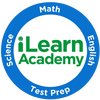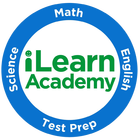|
How young is too young for tutoring? That depends on what you want from it.
When most people think of tutoring, they think of junior high and high school students who need help with challenging classes. But tutoring also builds strong foundational academic skills and self image for young children. In other words, tutoring doesn't have to be reactive -- it can also be proactive. By enrolling young students in tutoring, you help them build healthy habits and avoid learning challenges down the line. The Value of Early Intervention It's well established that students' experiences in kindergarten through second grade set the trajectory for the rest of their academic careers. Their level of comfort with basic reading and math skills positions them for ongoing success or frustration, and the study and organization habits they form during this period will stick with them. Furthermore, early intervention allows educators to track a student's academic and social development and identify any challenges. If a student is behind developmentally, teachers and parents don't always have the time to give him the individualized academic attention he needs to catch up. This is where tutoring can make a huge difference. Tutoring for elementary-aged children focuses on establishing helpful learning strategies and positive self image, giving young children an edge over students who don't receive this personalized instruction. For example, a student who struggles with math can spend years developing learning strategies before hitting challenging classes like Algebra and Geometry. Because her tutor has helped her prepare, she avoids the negative experience of receiving a low grade and labeling herself "bad at math." Additionally, elementary years are ideal for tutoring because children are still developing their identities as students. Will your child's school experience make him confident or insecure? Curious or resistant? Motivated or resigned? Tutoring can play a large role in students' self-image and attitude toward learning. A curious, motivated student remains engaged - even in challenging courses - and is better positioned to pursue her passions later in life. Tutoring for Gifted Students Tutoring is useful for far more than boosting grades. It's also an excellent way for advanced children to learn at their own pace and avoid "academic boredom." If a student is not challenged in school, he often loses interest, disengages or acts out. By providing advanced students with a place to work ahead and explore their interests, tutoring helps them stay focused and reach their potential. Would you like you elementary-aged student to get a leg up and get ahead in class? Talk to an iLearn Academy staff member about how tutoring can set your child up for future academic success, or enroll now in our Fall Program.
2 Comments
As the cost of child care steadily rises, parents are looking for ways to get more for their money. Whether that's through nannies who also teach piano or after-school programs that help children learn Spanish, today's parents want their child care dollars to go farther.
Tutoring is a great example of a child care option with added benefits. Tutoring gives parents the chance to run errands or squeeze in a workout while their children build skills that help them excel in school and beyond. In most cases, tutoring costs more than a babysitter, because students receive personalized academic support from a knowledgeable instructor. In some cases, however, small-group tutoring is more affordable than hiring a nanny or paying for athletics. So before spending big bucks on child care, take a look at the afterschool tutoring programs in your area. You might find a perfect fit for your child care needs -- and your student's academic goals. Rising Cost of Child Care In Illinois, families spend an average of $27,854 annually on in-home childcare and $10,229 on in-center child care. This expense makes up 32 percent of the median household income in the state. That means that a given family in Illinois could easily be spending one third of its annual income on child care. With child care making up such an enormous chunk of household spending, it makes sense that parents increasingly view child care as an investment in their children's futures -- and choose child care options that offer concrete benefits. It's tough to find anything more beneficial for children than academic skill and confidence. That's why so many parents turn to tutoring as a regular child care option. Benefits of Tutoring A 90-minute tutoring session for an elementary school student can be as affordable as $36/hour. When you pick your child up from the session, her homework is complete, she is caught up on new concepts, and her tutor has helped her prepare for any upcoming projects or large assignments. This lets families spend weekday evenings free from homework stress. Studies show that students who receive tutoring perform significantly better in core subjects and on standardized tests. With weekly tutoring, parents can spend less time worrying about school performance and more time connecting with kids. Not only does tutoring boost grades and save time at home, it builds confidence. This can affect your child's attitude toward learning and his motivation in school for years to come. Paying for Tutoring Many companies allow employees to put up to $5,000 in tax-free Dependent Care Accounts to pay for child care. This money can be applied to tutoring expenses, as well. Ask your employer about its Flexible Spending Account options, and check with your human resources office to see if your company offers other child care subsidies. On your personal income tax return, you can itemize up to $3,000 per child for child care or tutoring expenses, which can yield up to $600 in tax savings. Group tutoring is another way to save money. Look for a tutoring center that places no more than two or three students in a group and matches your student with others at her level. Find a Small Group iLearn Academy offers affordable small-group tutoring for children as young as kindergarten. To learn more, sign your student up for a short diagnostic test. |
Categories |
We make a personal commitment to ensure each student is well-prepared for the academic school year.
Dedicated to helping your student succeed.
©
iLearn Academy 2019



 RSS Feed
RSS Feed
